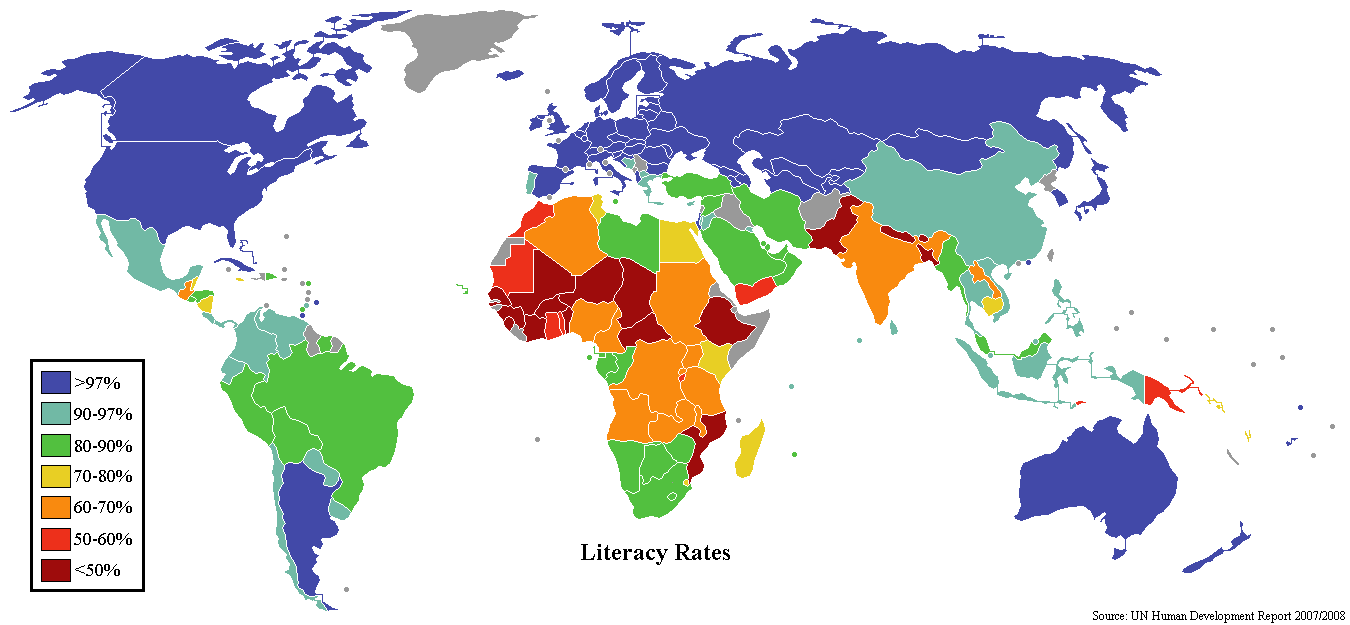Literacy is a topic close to my heart.
I became a teacher 12 years ago because I felt a call to do whatever possible to make sure that all children knew how to read. Since then, the theme has deepened for me, coming to mean much more than just knowing how to read.
Dennis and I recently hashed out our working understanding of literacy in Boy in the Bubble revisited and in Literacies – digital and otherwise…or not. Christopher has explored the historical roots of education and literacy and we discussed what this might mean in a contemporary context in Digitality or Why ‘Literacy’ is Dead and again in Literacies – digital and otherwise…or not, referenced above.
I am coming to know literacy as being able to use cultural tools to make sense of the world we live in.
When I couple that with my understanding of experience and story – see Who are teachers? and my comment to SASSY reviews CNN’s Black in America: Black Men – I need to respect that there are many ways to do this, to make sense of the world we live in – to make sense of me in the world I live in relation to you and you in the world you and you live.
And so I am unsettled this morning as I reflect on how we – those of us who champion educational technology – think about, blog about, talk about, present about, attempt to persuade about, make assumptions about sense-making in our world.
This unsettled feeling has been creeping up on me, hanging out in my shadows. It stepped out of them for a moment this morning as I read Doug Belshaw’s EdD Thesis Proposal, in particular his equation of literacy in the 21st century with digital literacy. I commented (or at least I tried to, until edublogs’ server dropped the connection to the site … once again…):
Yup, still unsettled by the equation
literate in the 21st century = digitally literateI think it is part of the equation, one of the ways to get there, but the sole definition of contemporary literacy?
Certainly excludes people without much access to digital media. Is there a danger of creating an even larger illiterate world by virtue of this definition?
I’m curious as to how you will explore this.
And I still ask the question – are we creating an even larger divide between peoples and cultures with different access to media when we make statements like:
“Literacy today depends on understanding the multiple media that make up our high-tech reality and developing the skills to use them effectively” (from Connecting the Digital Dots: Literacy of the 21st Century (2006) by Barbara R. Jones-Kavalier and Suzanne L. Flannigan)?
Can we really say that literacy depends on that? To rephrase using somewhat out-of-date terminology, by doing so are we creating an even larger divide between the 1st, 2nd, and 3rd worlds? And what about between the different socio-economic situations within our own countries?
Are we honouring different stories and experiences by limiting our definition of literacy to digital, or at the very least by claiming it to be the most relevant?

I have a lot of questions.
I feel unsettled.


Leave a Reply to Steve Ransom Cancel reply